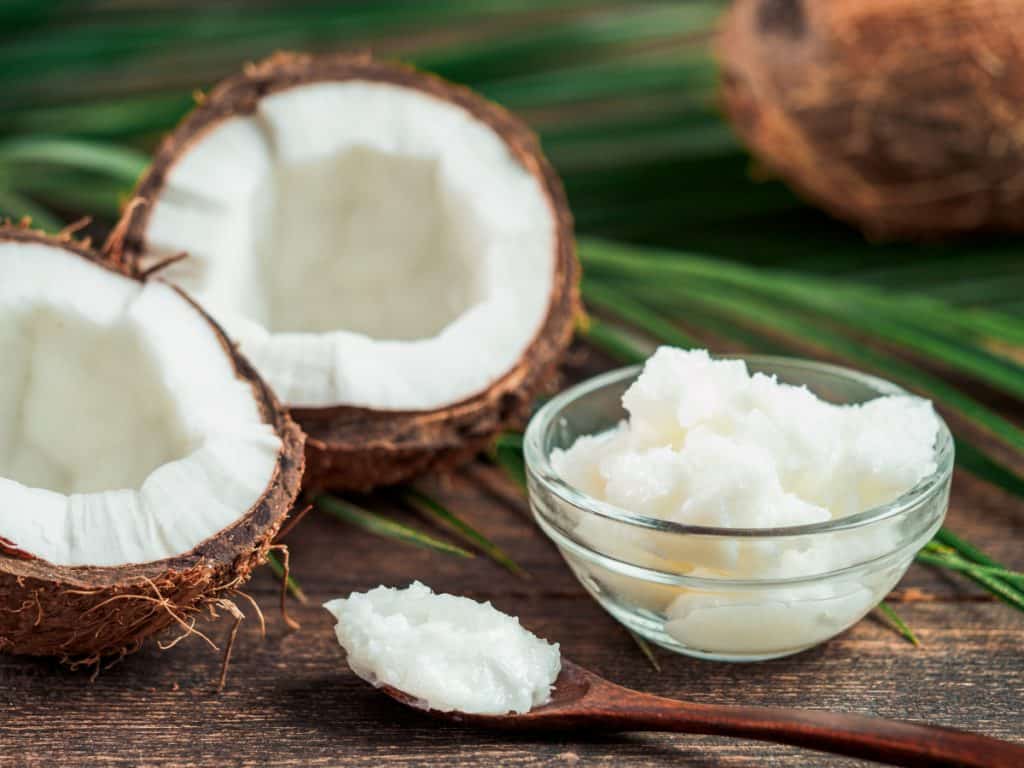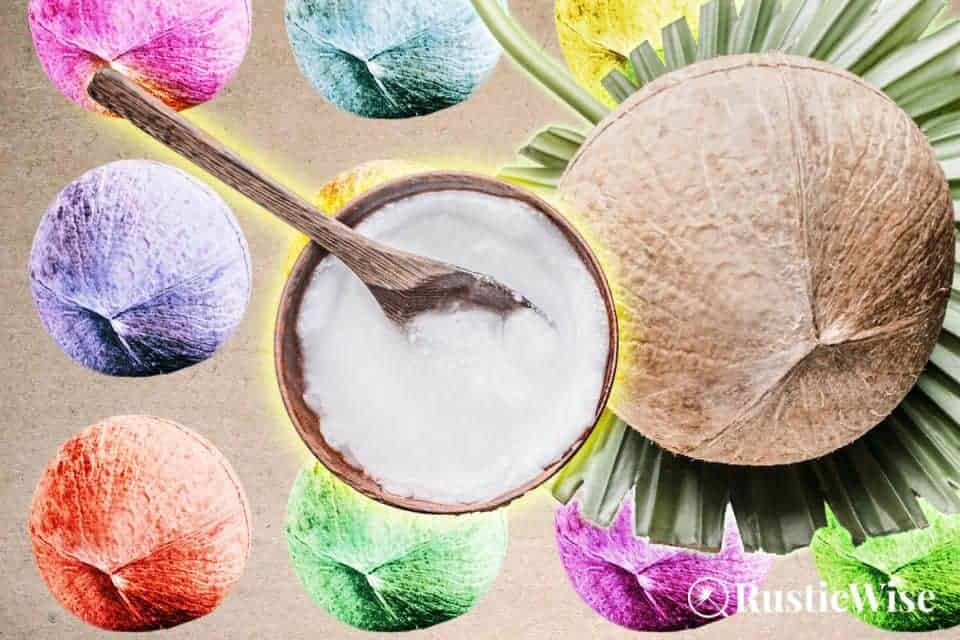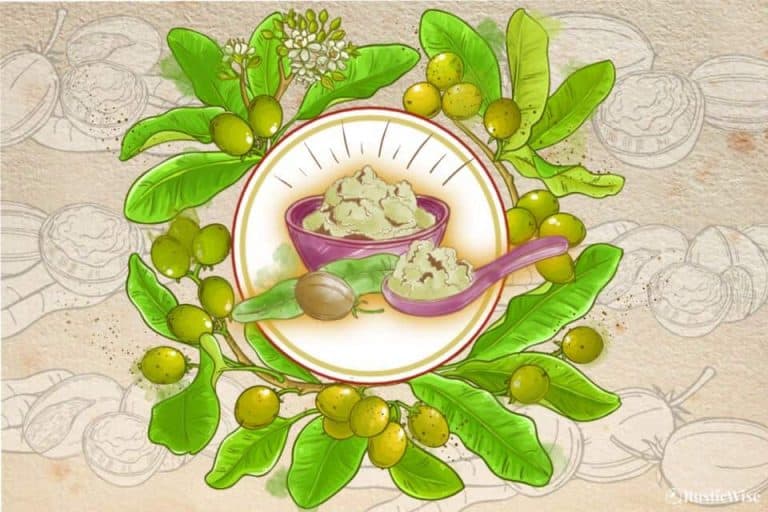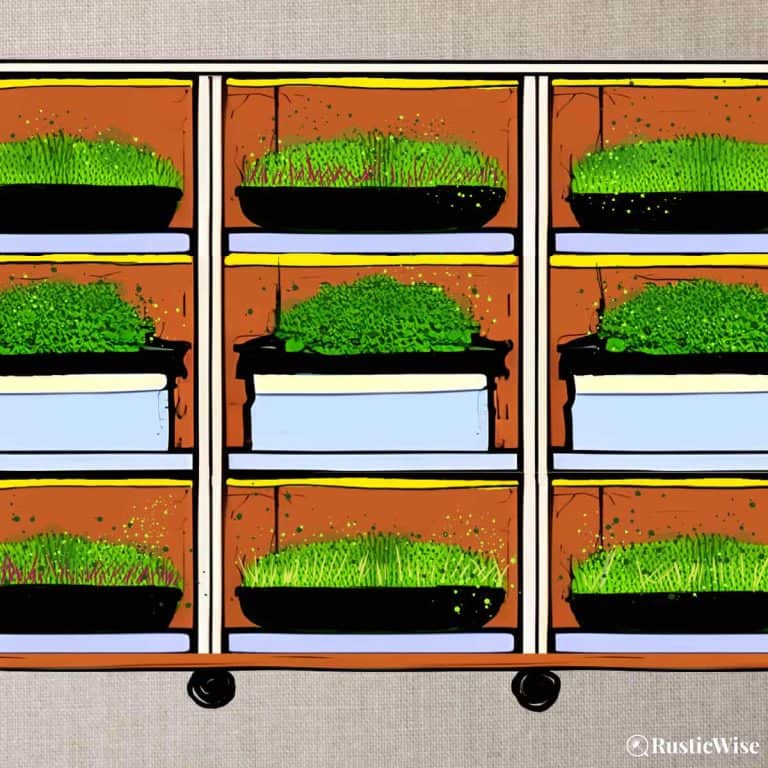The Best Coconut Oil for Soap Making: Here’s What You Need To Know
RusticWise is supported by its readers. When you purchase through links on our site, we may earn an affiliate commission. As an Amazon Associate, we earn from qualifying purchases. Thank You!
The best coconut oil for soap making is a pure, organic, and naturally refined variety that has a melting point of 76 degrees Fahrenheit. Coconut oil is a popular base soap making oil that produces big bubbly lather, and increases hardness and cleansing properties in your bar of soap.
The brand of coconut oil you use doesn’t matter—just select one that fits the criteria above and is within your budget. There are so many varieties of coconut oil available on the market today that it can be confusing trying to select the right one for your needs.
If you’re baffled about the differences between refined or unrefined, 76-degree or 92-degree, we’ll break it down in more details below. Read on to take a deep dive into the world of coconut oil.
A closer look at coconut oil varieties
The flesh or meat of coconuts (Cocos nucifera) are pressed to produce coconut oil. Coconut oil is made using either the fresh meat (which is then labelled as “virgin” or “extra virgin” or “unrefined”); or pressed using the dry meat called copra to produce refined oil.¹
Don’t get hung up on the terms virgin or extra virgin, however. These terms are not formerly regulated in the industry and there is little to no difference between them.
While there are differences between various types of coconut oils, the composition of solid coconut oil remains the same: it comprises mostly saturated fat. (Fractionated, or liquid coconut oil is a different beast altogether).
If we break it down further, the saturated fat is made of several fatty acids—almost 50 percent lauric fatty acid, followed by myristic acid and a bit of palmitic acid.
Let’s look at a few common types of coconut oil.
Virgin or unrefined coconut oil
Virgin/extra virgin or unrefined coconut oil is made of pressed fresh coconut flesh and contains mostly short-chain fatty acids. It undergoes minimal processing, leaving more of the nutrients and vitamins intact.
You’ll often see these terms:¹
- Expeller pressed: A machine presses the oil from coconut flesh by using steam or heat.
- Cold pressed: As the name implies, no heat (or minimal heat) is used to extract the oil from the meat. This helps preserve the nutritional profile.
With virgin or unrefined coconut oil, you’ll get the aroma and taste of coconut. It often costs more than refined coconut oil. Look for cold pressed and organic varieties that are extracted without the use of chemicals.
Use virgin or unrefined coconut oil for: Making DIY body butters or lotions where you want the scent of coconut. While you can use it for soaps, it costs more than refined oil, and the coconut scent likely won’t carry through in the finished soap. You can also use it for cooking or baking at low heat: it has a smoke point of about 350 degrees Fahrenheit (177 degrees Celsius).
Refined coconut oil
Sometimes you’ll see refined coconut oil labelled as RBD: this stands for Refined, Bleached, and Deodorized. This type of coconut oil has a neutral scent and taste.
Refined coconut oil is machine-extracted from copra, then undergoes steaming or heat processing to remove the aroma. It’s then further “bleached” or filtered by using bleaching earth and/or activated carbon to remove impurities.²
Some producers use chemicals like hexane to extract coconut oil from copra.
Look for organic varieties of refined coconut oil that are hexane-free. Check the label to ensure it’s 100 percent pure with no additives. Refined coconut oil contains plenty of medium-chain triglycerides which comprise mainly short-chain fatty acids.
Refined varieties are often more affordable than unrefined coconut oil.
Use refined coconut oil for: Making cold process or hot process soap. It’s an affordable oil that creates consistent results. You can also use it in other DIY skincare products. Refined coconut oils have a higher smoke point between 400 and 450 degrees Fahrenheit (204–232 degrees Celsius) that also makes it great for cooking or baking at higher temperatures.
Fractionated, or MCT (medium-chain triglycerides) coconut oil
Sometimes you’ll see this type of oil labelled as Caprylic/Capric Triglycerides. This type of coco oil is liquid at room temperature, as it contains a high concentration of short-chain fatty acids (with long-chain fatty acids removed).³
Fractionated oil is also RBD. It is clear and has a lighter consistency that’s easily absorbed by skin. Stick it in the fridge and it’ll still remain liquid.
Fractionated oil enjoys a very long shelf life, longer even than its solid counterparts.
Use fractionated coconut oil for: Making DIY skincare products such as massage oils, lip balm, or as a carrier oil. Liquid coconut oil behaves much differently in soaps than its solid counterparts—you won’t get the same hardness in your bar of soap.
76 degree coconut oil
This refers to the melting point of the oil at 76 degrees Fahrenheit (24 degrees Fahrenheit).
This is the most widely available type of coconut oil and the most commonly used for soap making from scratch (cold process or hot process).
92 degree coconut oil
This oil has a higher melting point at 92 degrees Fahrenheit (33 degrees Fahrenheit) because it has been hydrogenated.
While you can use this type to make soap, many soapers argue it makes a harder bar of soap, but with less lather.

Refined vs. unrefined coconut oil
There’s some debate whether refined or unrefined is better for soap making. While I favor refined for making homemade soap, not everyone agrees.
Coconut oil that is unrefined has had minimal processing done to it, so some would argue that it has most of the original properties intact and is therefore better for the skin. (But personally, I have seen little difference in the finished product!)
The good news is you can use both refined or unrefined oils to make great handmade soap. Just know that with unrefined oil, the aroma likely won’t carry through, and may (or may not) wreak havoc with any other EO or FO you may add.
My advice is more pragmatic: get whatever type of coconut oil that’s more affordable! In most cases, this is refined coconut oil which is why most soap makers stick with it.
Coconut oil properties in soap
There’s a good reason coconut oil is one of the most popular base oils for making soap.
- Produces strong, bubbly lather.
- Effective cleanser.
- Adds hardness to soap.
- Not prone to oxidation, which gives it a fairly long shelf life.
- Adds moisturizing properties when used in small doses. When used in larger quantities, it may produce a drying effect unless you balance out the superfat content.
Tip: For most recipes, keep the percent of coconut oil in your soap recipe to 30 percent or less. If you have very dry or sensitive skin, keep it to around 10 to 15 percent. It’s possible to make a bar of soap with 100 percent coconut oil, but you’ll need to bump up the superfat percent.
You might like
Food Grade Coconut Oil, 1 Gallon (128 oz)
- COCONUT OIL: 100 percent pure 76 degree – 128 oz in 1-Gallon – Food Safe – Shipped in HDPE Safety Sealed Container with Resealable Cap.
- PLANT PART: from the copra, the dried meat of coconut.
- EXTRACTION METHOD: separate the copra from the hull of the coconut, solvent extracted, then Refined, Bleached, and Deodorized.
Found on Amazon
Check Current Price
Those in Canada and the UK should be taken to the product listing in your region.
Table of Coconut Properties in Soap Making
If you’re looking to make your own batch of DIY cold process soap (or hot process soap), you can use 76 degree or 92 degree. While you could use fractionated coconut oil to make soap this isn’t normally used.
As you can see, 76 degree and 92 degree lend the same properties to a bar of soap, while fractionated behaves quite differently.
| 76 degree | 92 degree | Fractionated | |
|---|---|---|---|
| Hardness | 79 | 79 | 100 |
| Cleansing | 67 | 67 | 100 |
| Conditioning | 10 | 10 | 0 |
| Bubbly lather | 67 | 67 | 100 |
| Creamy lather | 12 | 12 | 0 |
| Lauric acid | 48 | 48 | 2 |
| Myristic acid | 19 | 19 | 1 |
| Palmitic acid | 9 | 9 | 0 |
| Stearic acid | 3 | 3 | 0 |
| Ricinoleic acid | 0 | 0 | 0 |
| Oleic acid | 8 | 8 | 0 |
| Linoleic acid | 2 | 2 | 0 |
| Linolenic acid | 0 | 0 | 0 |
| NaOH SAP Value | 0.183 | 0.183 | 0.232 |
| KOH SAP Value | 0.257 | 0.257 | 0.325 |
Where to find the best coconut oil for soap making
As coconut oil is a base oil used for making homemade soap, you’ll need to buy a fair amount of it. Buying certain soap oils in bulk just makes sense (and cents!)
Look for coconut oil at your local grocery store. If you want to buy some in bulk, check your local commercial restaurant supplier.
Otherwise, there are many online suppliers to choose from such as Bulk Apothecary, Soaper’s Choice, and Wholesale Supplies Plus to name just a few. And of course, there’s always Amazon.
You might like
Organic, Steam Refined Coconut Oil from non-GMO, Sustainable Coconuts, 128 Fl Oz
- NATURALLY EXTRACTED: All-natural steam refining yields a pure, odor free, nutrient-rich oil containing 63% medium chain triglycerides and 50% lauric acid. No harmful chemicals or hexane.
- COMMITMENT TO QUALITY: Partners with organic farmers to source fresh, virgin coconuts and adheres to USDA certified organic and non-GMO guidelines.
Found on Amazon
Check Current Price
Those in Canada and the UK should be taken to the product listing in your region.
How to store coconut oil
As with other types of oils, keep coconut oil away from light and heat. You can also store it in the refrigerator. Shelf life of coconut oil varies depending on the variety and the way you store it. In general, refined coconut oil lasts about 18 months. Unrefined or virgin coconut oil may last between 2 and 3 years. Fractionated coconut oil may last a very long time, but is best when used within 2 years.
Check for signs of spoilage such as a funky smell, mold growth, or an altered color.
The takeaway: best coconut oil for soap making
The best coconut oil for soap making is a refined, organic, and pure coconut oil that’s additive-free. While you can use either 76 degree or 92 degree, the former is widely available, and the most commonly used to make batches of homemade soap. Use coconut oil to bring on the bubbles, hardness, and cleansing qualities you’ll love in your next batch of soap.
Related questions
How can you tell if you have 76 degree or 92 degree coconut oil?
If it’s not labelled on your jar, chances are you have a jar of 76 degree regular coconut oil. This is the most common variety and is sold at most grocery stores.
What’s a good coconut oil substitute for making soap?
Another oil that you could use instead of coconut oil is babassu oil. Babassu oil is another hard oil which lends cleansing properties and produces a bubbly lather, similar to coconut oil. It also contains plenty of lauric fatty acids like coconut.
Palm kernel flakes would also make an acceptable substitute. As with any substitution, make sure you run your numbers through a lye calculator first!
New to making soap? 🧼❓
👉We have a fantastic overview on the whole soapmaking process here: read our Timeless Guide To Soapmaking.
If you would like to see our soapmaking posts organized by topic type, see our Soapmaking Collection.
Would you like more timeless tips via email?
Fun tips to help you live an independent, self-sustaining lifestyle. Opt-out at any time.


References
- Harvard T.H. Chan School of Public Health, Coconut Oil, https://www.hsph.harvard.edu/nutritionsource/food-features/coconut-oil/. Accessed November 2021.
- International Coconut Community, ICC QUALITY STANDARD RBD COCONUT OIL, https://coconutcommunity.org/viewpdf/apcc_quality_standards_for_coconut_products/2. Accessed November 2021.
- Soaper’s Choice, MCT OIL, ORGANIC, COCONUT, https://www.soaperschoice.com/mct-oil-organic-coconut-58707sc?r. Accessed November 2021.

Author: Josh Tesolin
Josh is co-founder of RusticWise. When he’s not tinkering in the garden, or fixing something around the house, you can find him working on a vast array of random side projects.











